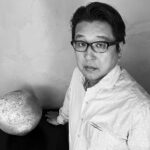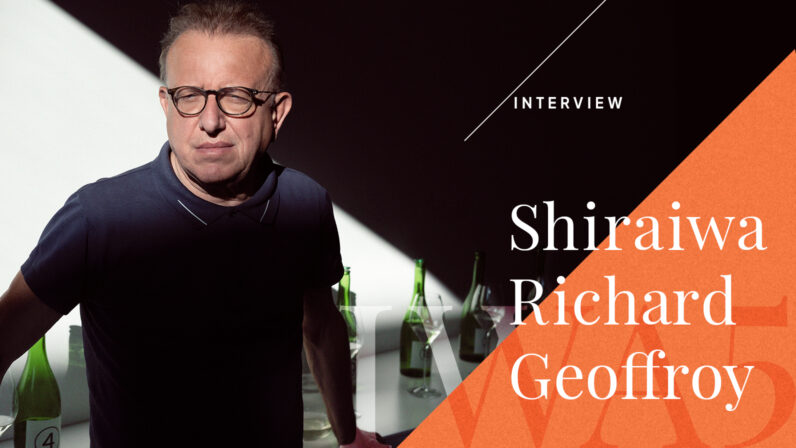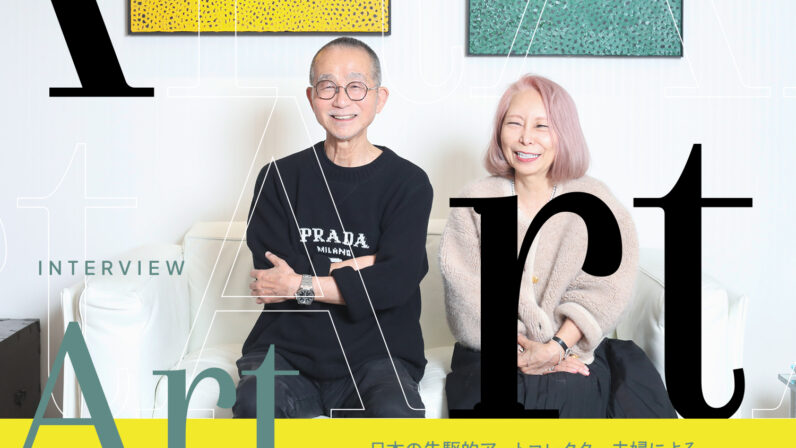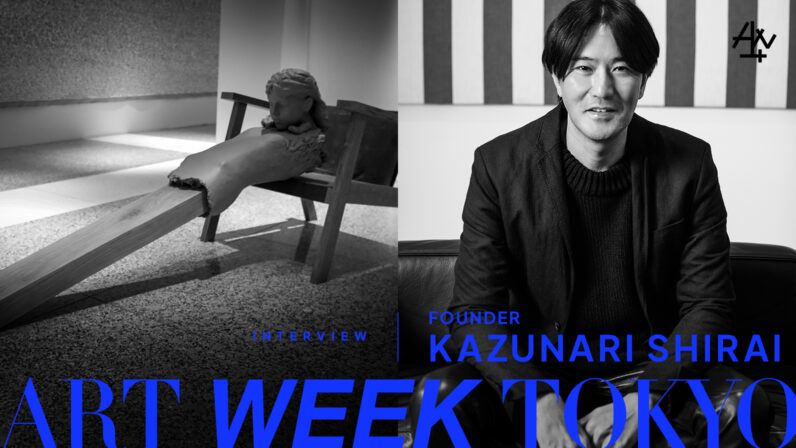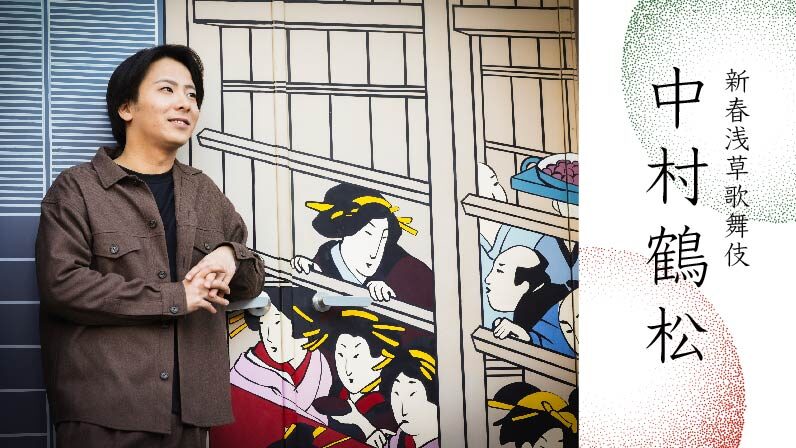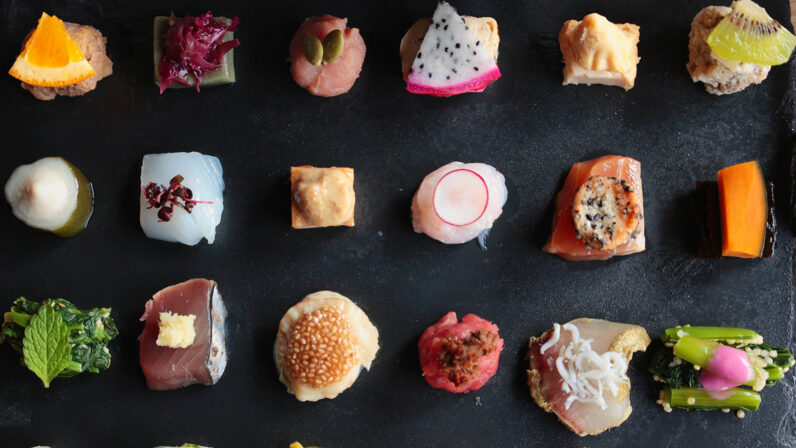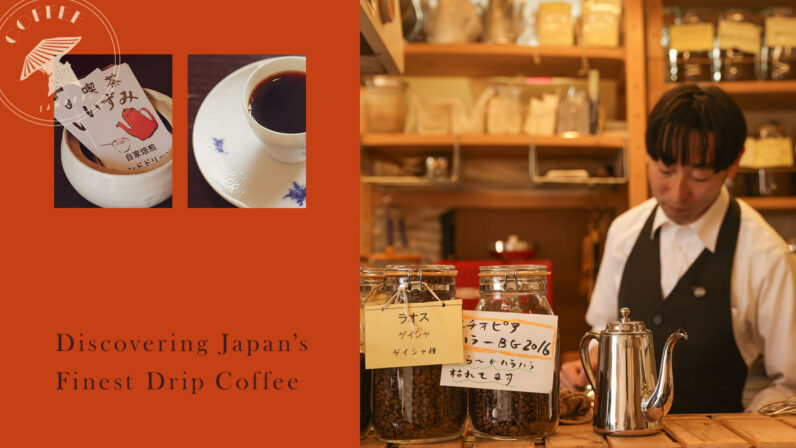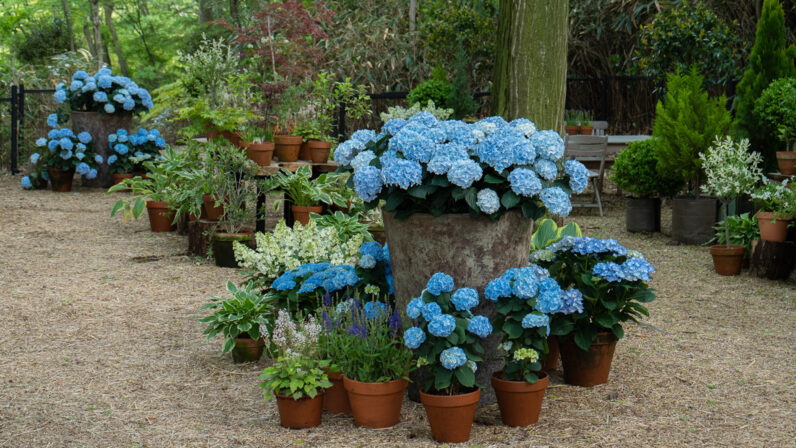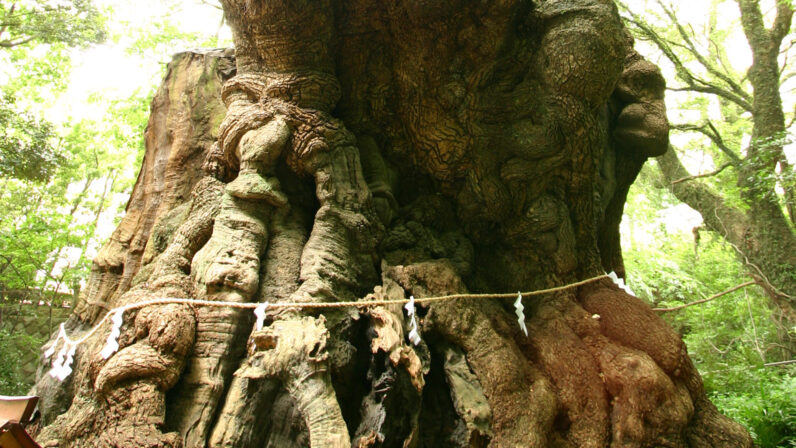In November 2022, the thirteenth generation Ichikawa Danjuro, previously known as Ebizo XI, officially assumed the prestigious name ‘Danjuro Ichikawa,’ a name with roots dating back to the Edo period and passed down through generations of kabuki actors from the Ichikawa family. Continuing his succession performances across various locations over two years, in May he will appear at the Kabuki-za, revered as the hall of Kabuki, for the ‘Dan-Kiku Sai’ (the ‘Dan-Kiku Festival’).
Now that he has become the thirteenth generation Danjuro, how will he lead the world of Kabuki? Read on as Danjuro Ichikawa shares his thoughts, and the emotions he’s experiencing.
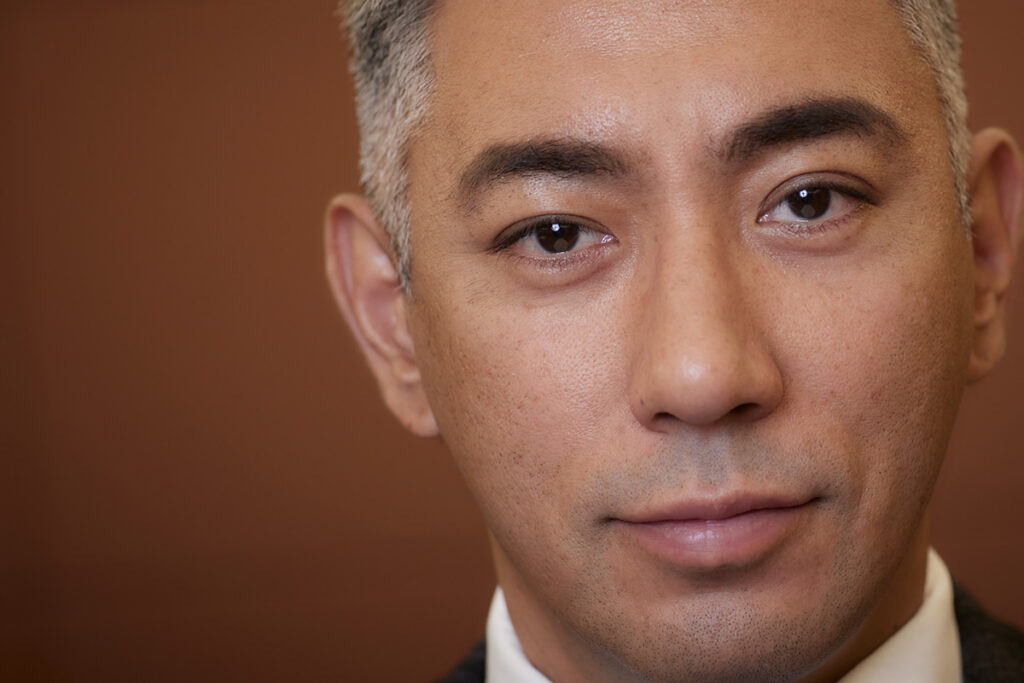
The Dan-Kiku Sai is a performance named by taking a character from each of the names of the 9th Danjuro Ichikawa and the 5th Kikugoro Onoe to honor their achievements during the Meiji era, starting in 1936. Since 1977, it has become a beloved May tradition at the Kabuki-za. This event holds special significance for Naritaya, the ‘yago’, or guild name, of the Ichikawa family—one of the most famous lineages in Edo kabuki and a long-standing supporter of the art form.
In May 2024, the thirteenth generation Danjuro Ichikawa will portray Banzuiin Chobei in the daytime play ‘Kiwametsuki Banzui Chobe,’ take on a koken (support role) in ‘Kenuki’ commemorating Ichikawa Sadanji IV’s first-year festival, and appear as Nikki Danjo in the evening play ‘Meiboku-Sendaihagi Yukashita.’
—Can you share what makes the roles of Banzuiin Chobei and Nikki Danjo, which will be performed at the Dan-Kiku Sai, so special?
Danjuro Ichikawa (hereinafter referred to as Danjuro): Banzuiin Chobei is considered the top outlaw in Edo. He’s the leader of his gang and is notoriously chivalrous. Despite knowing that an invitation from the rival government official Mizuno Jurozaemon (played by Onoe Kikunosuke) is a trap, Chobei accepts it to uphold his and his comrades’ honor, prepared to face death. He embodies the essence of a fearless man willing to make sacrifices, carrying a deep sense of solitude and inner conflict that even his wife and followers can’t make sense of. My aim is to portray Chobei’s noble aspirations and struggles as authentically as I can.
Nikki Danjo is a regent scheming to seize control of a family estate, often seen as a symbol of ‘evil.’ However, I believe that the perception of ‘good and evil’ can shift depending on one’s viewpoint. Nikki Danjo is a character with multiple dimensions, exuding dignity and a commanding presence. Considering the differing values of today’s audience compared to the Edo period when Nikki Danjo was originally performed, I believe it’s crucial to portray this role with a contemporary sensitivity while honoring the classical essence of the character.
I have been participating in the Dan-Kiku Sai since childhood, initially enjoying it purely for fun. However, in recent years, I have felt a responsibility for our generation to uphold and enrich the Dan-Kiku Sai. I hope the audience will enjoy the performances of myself, Onoe Shoroku, and Onoe Kikunosuke—three individuals who have grown up together and experienced the Dan-Kiku Sai since childhood, bringing our collective experiences and dedication to the stage.
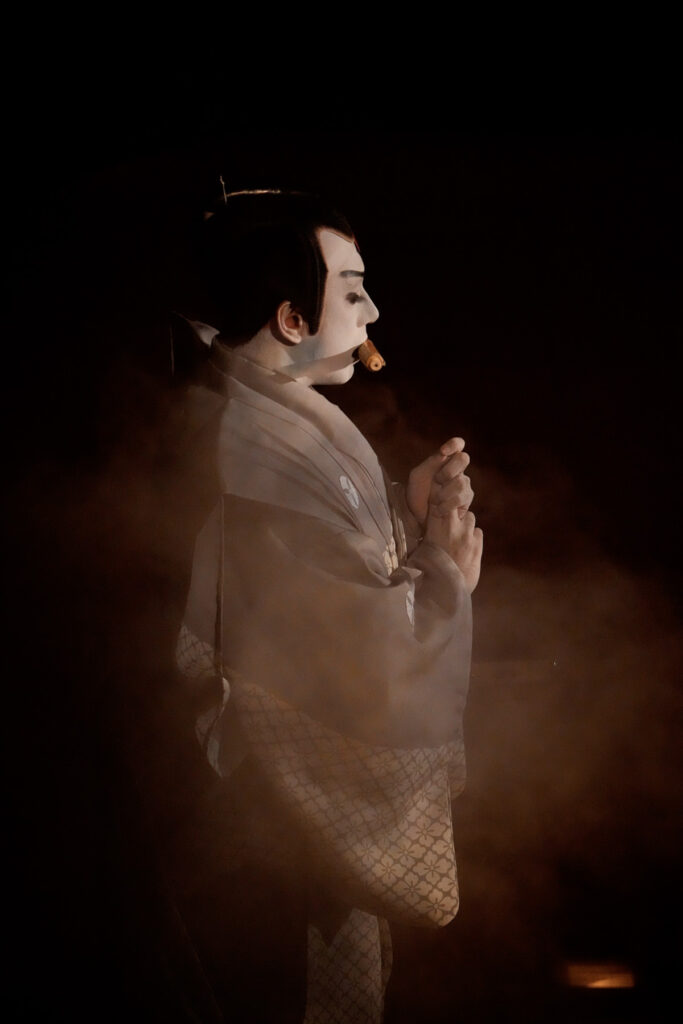
Meiboku-Sendaihagi Yukashita (Kabukiza, May 2024)
Nikki Danjo = Danjuro Ichikawa
© Shochiku
—In the fourth generation Sadanji’s Ichikawa memorial play ‘Kenuki,’ you will be performing the role of Koken (an assistant actor who supports the smooth progress of the play by staying near the actor on stage). What are your thoughts and feelings about taking on this role?
Danjuro: Out of deep gratitude towards the fourth generation Sadanji Ichikawa, I will take on koken. The Danjuro Ichikawa family had a system where once an disciple actor belonging to the family became independent, they were sent out not under ‘Naritaya’ but as ‘Takashimaya’, ‘Omodakaya,’ or ‘Mikawaya’ within the Ichikawa family. Sadanji moved to Takashimaya, yet he greatly cherished this favor and always thought about what should be done for the Ichikawa main family at pivotal moments. Even after my father, the twelfth generation Danjuro, passed away, he treated me with the same respect as he did my father, which made his passing extremely painful for me. I feel a strong obligation to repay my debt of gratitude to Sadanji for the Ichikawa main family, which is why I want to take on the role of Koken for Omezou Ichikawa, Sadanji’s son, with this in mind.
—Kiwametsuki Banzui Chobe was the last role you learned from your father, the twelfth generation Danjuro. Can you share what memories or impressions from that time have stayed with you?
Danjuro: In 2013, when I debuted as Banzuiin Chobei at Asakusa Public Hall, my father was hospitalized. I showed him rehearsal footage of my performance in his hospital room. After watching, he wrote me a letter expressing his thoughts. In the letter, he shared his feelings about my portrayal of Banzuiin Chobei and offered detailed advice on how I should interact with and instruct others. I was very grateful for his words, and this moment has been a cherished memory for me ever since.
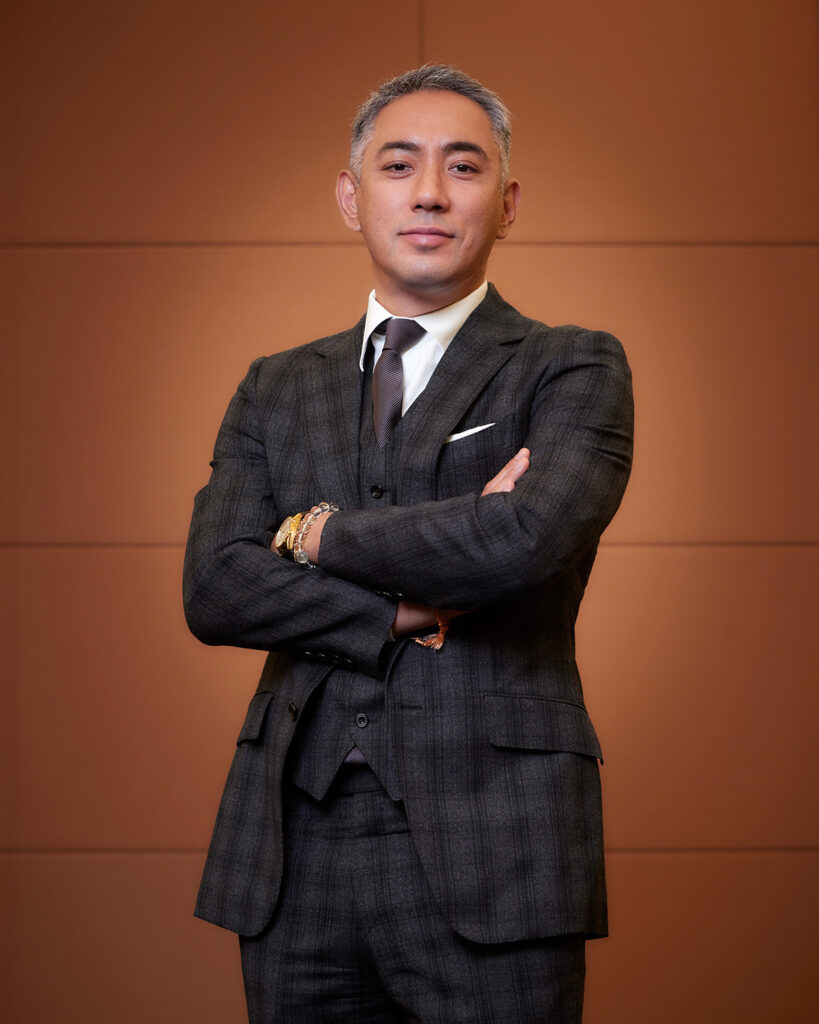
—Now that you have succeeded to the name Danjuro Ichikawa, could you tell us what you are experiencing and what you see as your mission?
Danjuro: First and foremost, what comes to mind is the idea of renovation. In the world, there are significant things that revolve or are segmented by the number 12. For instance, time is divided into 12 hours” and the zodiac consists of 12 signs. Considering this, as the thirteenth generation Danjuro, I feel a sense of needing to start anew. Given the challenges we’ve faced during the COVID-19 pandemic, the world is undergoing significant transformations, and I believe there is profound meaning in my succession to the name Danjuro as the thirteenth generation during this time. While upholding respect for the classics, it is also vital to explore new avenues. Since around 2014, I have been venturing into new works. Now, having been Danjuro for over a year, although it is still in the conceptual stage for me, I can envision a new direction, a fresh form of kabuki emerging, and I am eager to embrace this new challenge.
—As someone who holds positions such as a board member of an NPO and other managerial roles, what challenges do you identify for the current state of kabuki?
Danjuro: I believe that the ability to move forward decisively toward a clear direction defines a business leader. As a fellow business leader myself, I know that not everything goes smoothly, and during such times, it’s crucial to have individuals capable of initiating reforms and possessing a guiding compass to steer those reforms in the right direction. I believe those who possess this quality, this guiding compass, are the ones who can lead kabuki. Moving forward, I feel that being called Danjuro entails not only being an actor but also a producer, creator, and someone who can manage and oversee the broader perspective.
—What are Danjuro’s feelings about the value and potential inherent in kabuki?
Danjuro: Kabuki began with the first Danjuro’s passionate vision, which was carried forward by the second generation and has continued through the ages. Now, as the thirteenth generation, I am inheriting that same spirit. Kabuki, with its rich 400-year history of upholding tradition while embracing innovation, is an art form that the world can truly admire. Artists like Picasso and Mozart left behind incredible works and greatly inspired future generations, however they did not have formal successors in their craft, which has evolved and changed over centuries through the transmission of essence across generations. Kabuki is currently at a crossroads. I believe we must clearly identify and articulate the specific steps needed for its continued existence. It’s essential to start with a thorough reorganization and overhaul, wouldn’t you agree?
Danjuro, who is envisioning the future of kabuki with a comprehensive outlook, is drawing up plans. His endeavors to put these into practice are captivating and cannot be overlooked. Time will tell how things unfold, however, Danjuro’s vision is sure to have a profound impact on the art form.
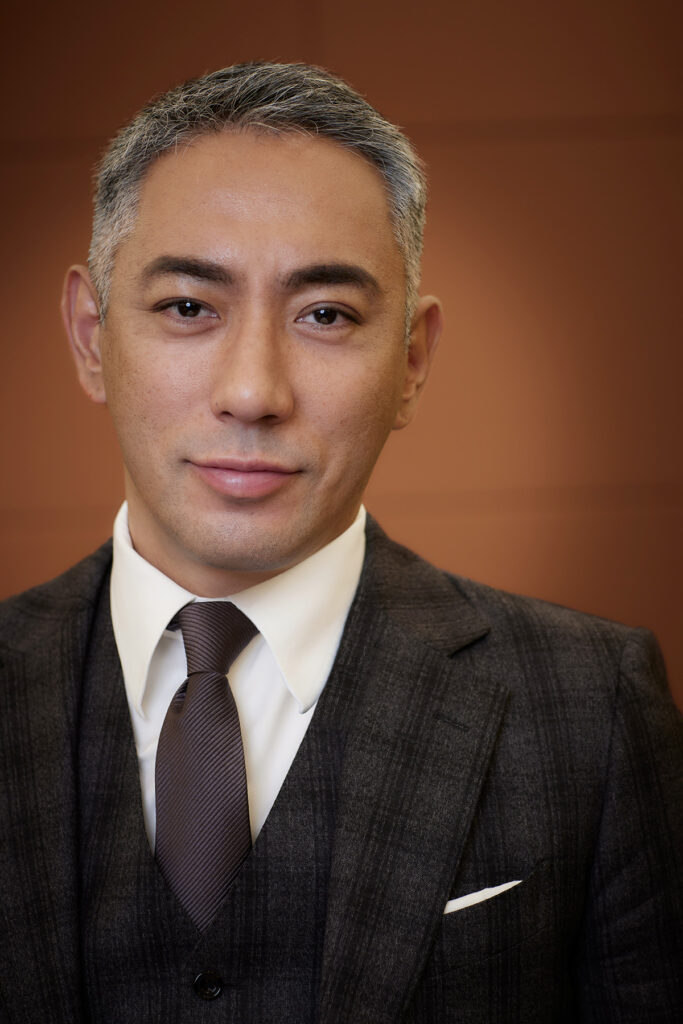
Danjuro Ichikawa
Born in Tokyo. In May 1983, he made his debut at Kabuki-za as Harumiya in ‘Genji Monogatari.’ In May 1985, he succeeded to the name Shinnosuke Ichikawa VII as Kikambo in ‘Uiro-uri’ at Kabuki-za. In January 1999, he performed as Benkei in ‘Kanjincho’ for the first time at Asakusa Public Hall. In May 2000, he took on the role of Hikaru-genji in ‘Genji Monogatari’ for the first time at Kabuki-za. In May 2004, he adopted the name Ebizō Ichikawa XI. He also participated in the opening ceremony of the Tokyo 2020 Olympic Games in July 2021. Finally, In November 2022, he inherited the name Danjuro Ichikawa Hakuen XIII at Kabuki-za.


